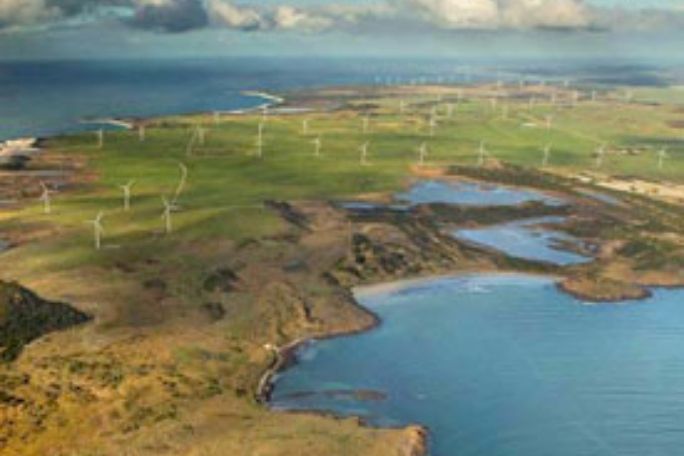Lesson summary
Students will develop an appreciation of the natural beauty of the Tasmanian landscape which will help tune them into the importance of Hydro Tasmania’s commitment to environmentally friendly operations. Students will also consider the impact of waterways on the liveability of places and how they connect places and affect landscapes and lifestyles.
Learning intentions:
Students will...
- extend their knowledge of the natural features of Tasmania and how waterways affect the landscape which in turn affects the perceived liveability of places
- develop an increasingly complex understanding of the disadvantages of dirty energy production operations
- realise the important impact that water has on the environment and the aesthetics of the landscape.
Lesson guides and printables
Lesson details
Curriculum mapping
Australian curriculum content descriptions:
Year 7 Geography:
- The influence of environmental quality on the liveability of places (ACHGK045).
- The ways that flows of water connect places as it moves through the environment and the way this affects places (ACHGK038).
- The economic, cultural, spiritual and aesthetic value of water for people, including Aboriginal and Torres Strait Islander Peoples and peoples of the Asia region (ACHGK041).
Year 7 Science:
- Some of Earth’s resources are renewable, but others are non-renewable (ACSSU116).
- Science understanding influences the development of practices in areas of human activity such as industry, agriculture and marine and terrestrial resource management (ACSHE121).
Year 8 Geography:
- The aesthetic, cultural and spiritual value of landscapes and landforms for people, including Aboriginal and Torres Strait Islander Peoples (ACHGK049).
- The human causes and effects of landscape degradation (ACHGK051).
Year 8 Science:
- Science and technology contribute to finding solutions to a range of contemporary issues; these solutions may impact on other areas of society and involve ethical considerations (ACSHE135).
- Science understanding influences the development of practices in areas of human activity such as industry, agriculture and marine and terrestrial resource management (ACSHE136).
Syllabus Outcomes: GE4-1, GE4-4, GE4-2, GE4-3, GE4-5, GE4-6, SC4-13ES, SC4-11PW SC4-13ES, SC4-12ES.
Time required: 60 mins.
Level of teacher scaffolding: Medium – oversee activity.
Resources required
- Internet access
- A simple prize or reward for 4-5 students (or a prize that can be shared among a 4-5 person group) such as a packet of Tim Tams or Freddo Frogs, extra free time, stickers, certificates
- Student Worksheet (one copy per student OR computers/tablets to access the online worksheet)
Additional info
This lesson has been developed in partnership with
Hydro Tasmania.
Hydro Tasmania has been at the forefront of clean energy innovation for one hundred years. It is Australia’s largest producer of clean energy – generating hydro and wind power – and the largest water manager. Hydro Tasmania has 55 major dams, operates 30 hydropower stations and has built some of Australia’s largest wind farms.
Hydro Tasmania also sells energy in the National Electricity Market through its retail business Momentum Energy, and sells its expertise internationally through its consulting business Entura.
Visit the Hydro Tasmania website to learn how the business is working towards Australia’s clean energy future.


Welcome back!
Don't have an account yet?
Log in with:
By signing up to Cool.org you consent and agree to Cool's privacy policy to
store, manage and process your personal information. To read more, please see
our privacy policy here(Opens in new tab).
Create your free Cool.org account.
Many of our resources are free, with an option to upgrade to Cool+ for premium content.
Already have an account?
Sign up with:
By signing up to Cool.org you consent and agree to Cool's privacy policy to
store, manage and process your personal information. To read more, please see
our privacy policy here(Opens in new tab).